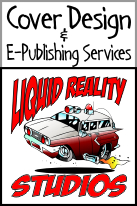Are you insane? Well, if you are, then join the crowd. But there are a few realities that we need to discuss. You’re going to see the word honest in this article – a lot. If you can’t be honest with yourself, you won’t make it as a writer. The first big question you need to answer with total honesty is whether this is something that you have to do, or you want to do?
If you have to do it, then put your butt in the chair and do it. Quit reading about it. Quit talking about it. Quit thinking about it. Quit making excuses for not doing it. Just put the words on the page. As my husband’s niece Heather has told me more times than I can count, “You can’t edit a blank page.”
If your answer is “I want to do it,” that means you can spend the rest of your life sitting on your butt talking, reading, and thinking about it, while you make excuses about why you aren’t actually doing it.
One of the things you need to realize is that only the actual writing is a solitary process. Everything else requires a team effort. When I begin a book, I have a story in mind and off I go, just as fast as I can. I don’t worry about grammar, format, or much of anything. I simply try to tell the story. Once I get the story down, then it’s self-edit, self-edit, self-edit, and then do it all one more time. Not nearly as much fun as the rush of writing.
Now comes the hard part. Give it to a friend who has enough guts to tell you the truth. Ask them to be honest and mean it. If you’ve never given your work to someone to read before – it’s horrifying. Honestly, it’s gut-wrenching every time I ask someone for a first read. But it’s the most important thing you can do. When they tell you what they like, thank them. When they tell you what they don’t like, thank them more. Don’t defend your work or dismiss their comments. They’re entitled to their opinion, and you asked for it. Listen and learn. An honest beta-reader, who reads the genre you’re writing in, is worth their weight in gold. An honest beta-reader, who doesn’t read in your genre, but is willing to put their personal choice aside to help you, is worth their weight in platinum.
Heather read my first draft of Protecting Parker, and at one point marked the page with a note that read, “Are you s***ing me? This is all he has to say? You so p***ed me off as a reader. I want to slap you.” What I heard in my head was, “I loved this story until right here. You should fix this so I can love you again.” Of course, I didn’t hear that until after I got over my screaming, hissy fit. How dare she presume to challenge me? Thank goodness she did. It’s a better story now. The worst beta-readers say, “I loved it. You’re great,” but don’t tell you what they loved or why. If that happens, find a new beta-reader! It’s absolutely useless feedback except to stroke your ego. Most of us have enough ego – we need someone honest and courageous enough to tell us when we didn’t get the job done.
Once my beta-readers are done abusing me, then I go back to the lonely job of rewrite. Set it down for a few weeks and then self-edit again. Self-edit is the hardest part of the process, in my humble opinion. But you need to be realistic with yourself. I can write a book fairly quickly, but I can’t finish a book as fast as I write it. I need to set it aside and take a break between the edits. Often, I read the story multiple times, sentence by sentence, out loud. This is all before an editor gets involved in the process and the abuse begins anew.
Finally, it’s up to you to go back now and answer the first question with total honesty. Is writing something that you have to do, or want to do?
I have to!


Heaping on abuse. I love being a beta reader! haha